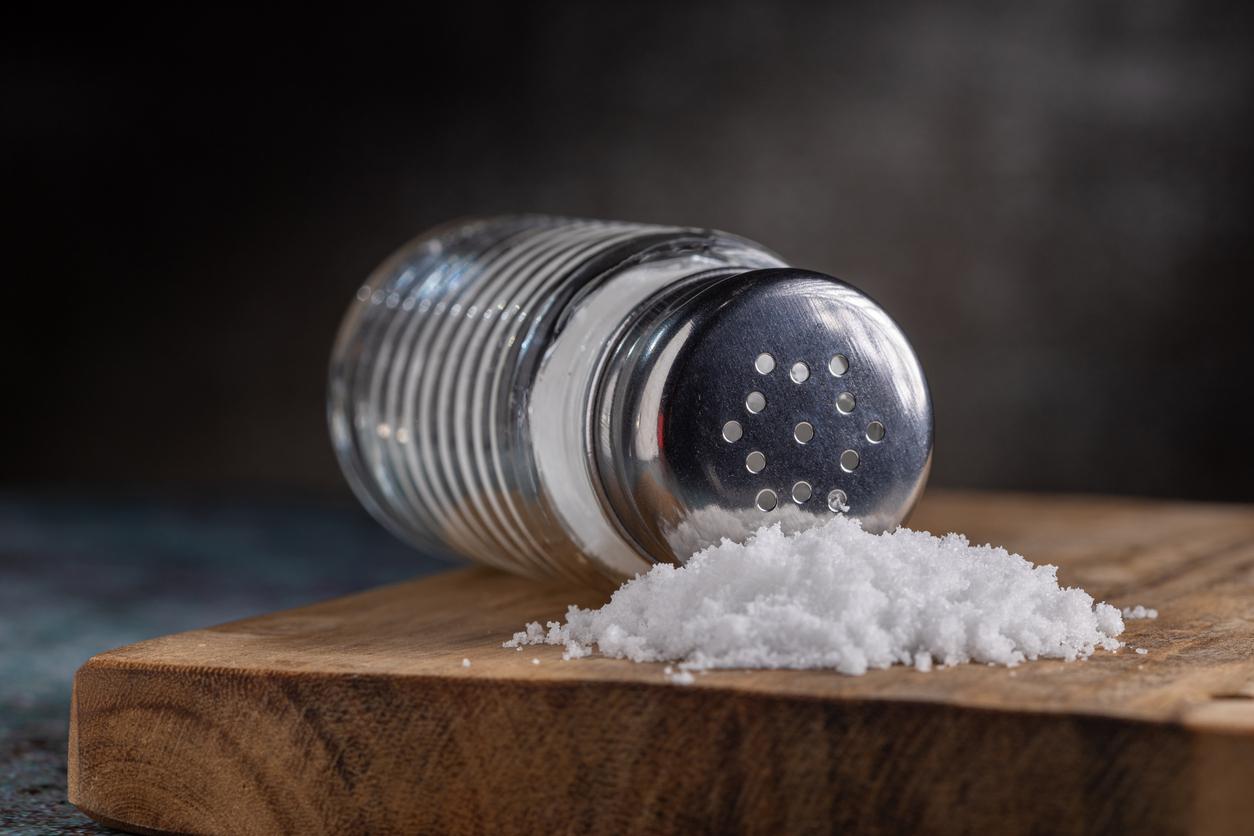Potassium supplements in salt are effective in reducing recurrence rates of stroke and mortality.

- After having ingested a salt substitute, made up of 75 % sodium chloride and 25 % mass potassium chloride, a stroke survivors saw their systolic blood pressure drop.
- The latter also presented 14 % risks less to undergo a new brain attack.
- The consumption of enriched potassium salt has resulted in a 30 % reduction in stroke and 21 % of deaths related to this disorder.
After having a stroke (stroke), high consumption of sodium and low consumption of potassium are considered key risk factors to undergo a new brain attack. This was particularly observed in northern China. Based on this observation, researchers from the University of Wuhan wanted to assess the effects of salt substitutes compared to ordinary salt on the incidence of stroke recurrences and mortality.
14 % risk in less to undergo a new stroke thanks to salt enriched with potassium
To carry out their study, published in the journal Jama Cardiologyscientists recruited 20,995 people from 600 villages in Rural China. After exclusion of 5,746 adults without a stroke of stroke, 15,249 patients who underwent a stroke were included in the intervention. During this, participants consumed either a salt substitute, made up of 75 % sodium chloride and 25 % mass potassium chloride, or classic salt. Measures of their blood pressure have been analyzed. The team has also taken into account mortality, urinary sodium/potassium excretion and safety results, including the risk of hyperkalemia. However, “The main result examined was recurrence of the stroke”.
The results have shown that, over a monitoring of about months, the average difference in systolic blood pressure was 2.05 mmhg (3.03 in the control group and 1.08 mmHg in the group that has taken salt enriched with potassium ). According to the authors, the number of recurring brain vascular accidents was 14 % lower in the group that ingested 25 % potassium substitute compared to the group that consumed ordinary salt. In total, 2,735 recurring cerebral vascular accidents (691 mortal and 2044 non-mortals) and 3,242 deaths were recorded. Hemorrhagic cerebral vascular accidents experienced a relative reduction of 30 % and deaths related to strokes decreased by 21 %. No significant difference has been observed between groups with regard to hyperkalemia.

“A safe and inexpensive dietetic intervention”
“These results indicate that the reduction of salt with 25 % potassium is a safe and inexpensive dietetic intervention which can reduce recurrence of stroke and mortality in survivors”, concluded the researchers. They suggest a broader implementation of salt substitutes, especially in regions where sodium consumption is high and where access to preventive health care is limited.

















